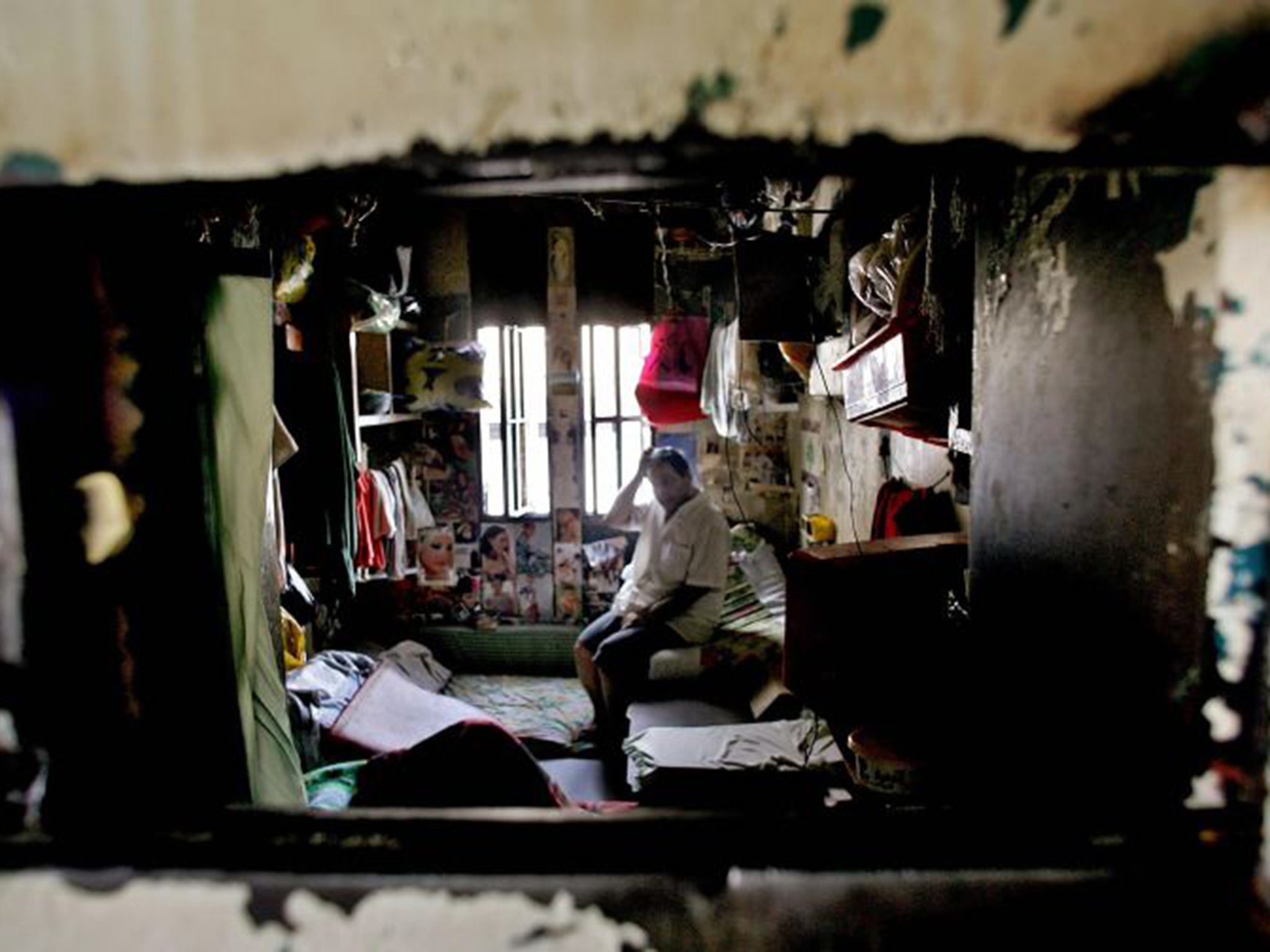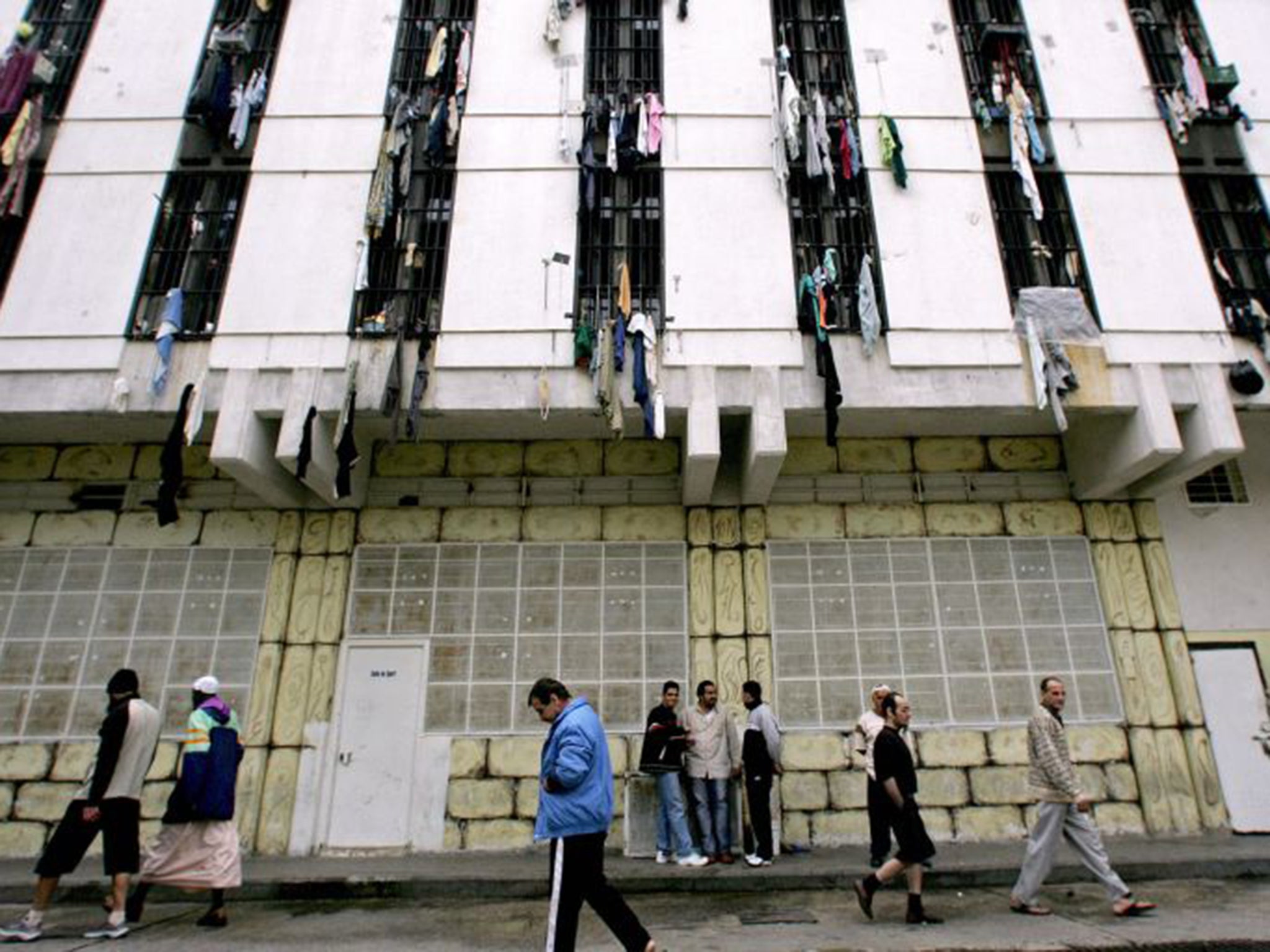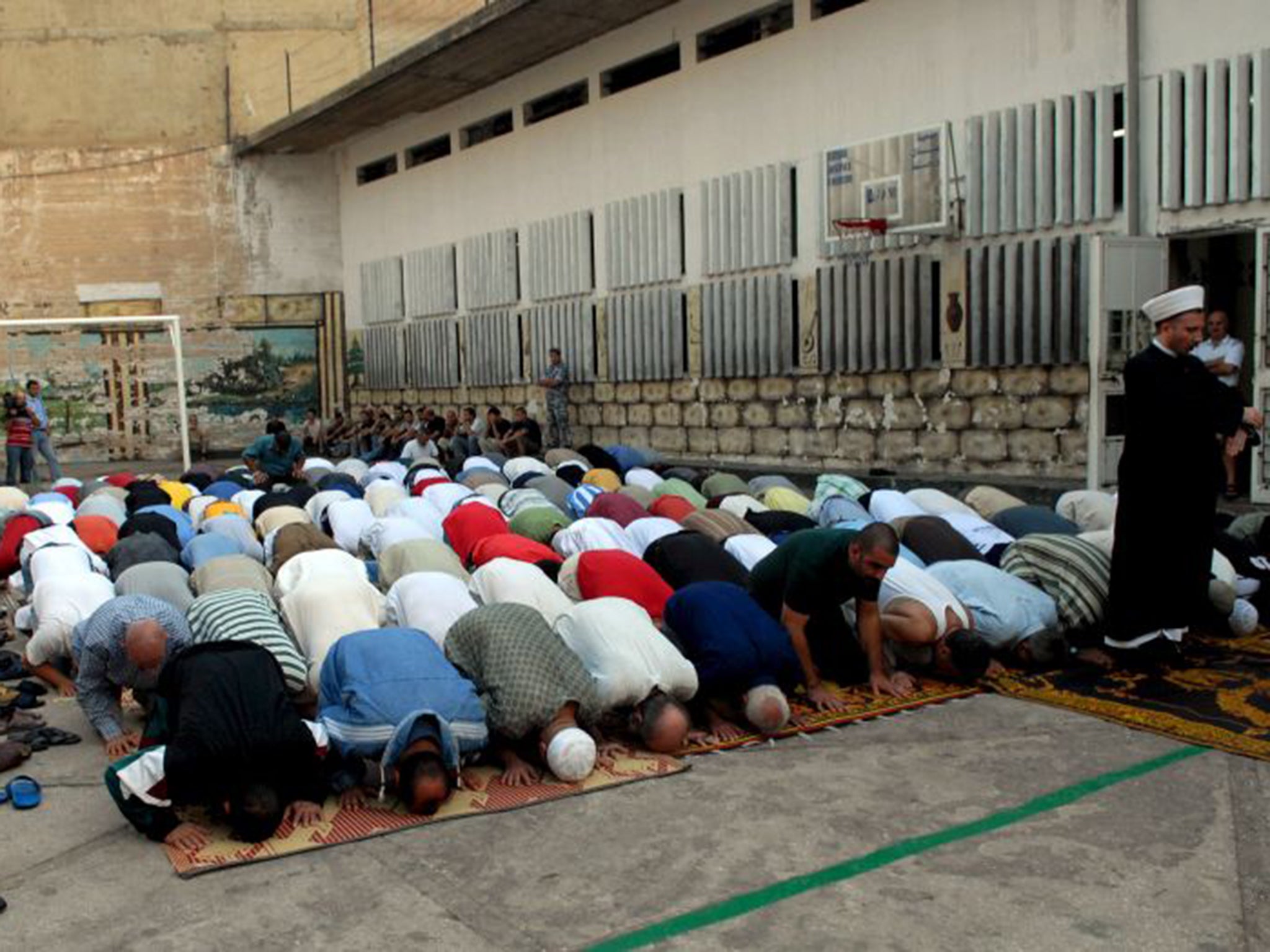Lebanon's Isis prison: A rare glimpse inside the jail from which terror attacks have been directed
Raid exposes hundreds of mobile phones, computers, multiple internet connections and video conferencing capabilities in the the Islamist bloc

Your support helps us to tell the story
From reproductive rights to climate change to Big Tech, The Independent is on the ground when the story is developing. Whether it's investigating the financials of Elon Musk's pro-Trump PAC or producing our latest documentary, 'The A Word', which shines a light on the American women fighting for reproductive rights, we know how important it is to parse out the facts from the messaging.
At such a critical moment in US history, we need reporters on the ground. Your donation allows us to keep sending journalists to speak to both sides of the story.
The Independent is trusted by Americans across the entire political spectrum. And unlike many other quality news outlets, we choose not to lock Americans out of our reporting and analysis with paywalls. We believe quality journalism should be available to everyone, paid for by those who can afford it.
Your support makes all the difference.The trigger was the apparent planning of a suicide operation from inside the jail. The man who detonated himself out of a café in the city of Tripoli on 10 January, was directed from the third floor of Bloc B of Roumieh, a prison housed behind a thick, stone, barbed wire topped wall just north of Beirut.
A raid that followed two days later exposed hundreds of mobile phones, computers, multiple Internet connections, video conferencing capabilities. Even satellite phones, illegal outside the prison walls, were found in Bloc B - widely known as the Islamist bloc. The bloc housed 865 prisoners who are incarcerated on terrorism charges. Despite assurances that the Internal Security Forces are now fully in control of the facility, the new third floor islamist quarters are still off limits to visitors, and even to the man in charge of the prisons himself.
“I can confirm that Roumieh prison is an operations room for Isis,” interior minister Nohad al-Machnouk told the local press following the raid. Little of that remains now. In the abandoned building, a clean-up is under way. Sparks fly as new 200 kilogram doors are installed, and the damage done by the inmates, who set fire to their foam mattresses in protest at the raid, is repaired. Al-Qaeda in Sham [the Levant], the black graffiti on the door on the first floor still reads. A crumpled up pink prayer mat lies on one of three slabs which are used as beds. A number of prisoners reside in every 2.5 by 4 metre cell - seven inmates to a cell is common.

The inmates were stripped and moved to an identical, recently renovated building called Bloc D. The Independent on Sunday was not allowed to talk to prisoners while visiting the facility in the company of General Antoine Zikra, head of the Lebanese correctional facilities, and the third floor was completely off limits.
Most of the 865 prisoners in the Islamist bloc were arrested during the 2007 operation in Nahr el Bared, a Palestinian camp in the north of the country. An Islamist group called Fatah al-Islam battled with the Lebanese army. Thousands were arrested and eight years later, hundreds have yet to be sentenced.
Their fate has returned to the spotlight following the kidnapping of around 30 Lebanese soldiers and policemen in August 2014. Those soldiers were battling militants from Jabhat al-Nusra and the Isis. In order to return the soldiers; the groups have demanded hundreds of prisoners be let go from Roumieh. The Lebanese state has, so far, refused that, yet negotiations are ongoing with al-Qaeda offshoot Jabhat al-Nusra. According to some reports, four of the soldiers have been executed and a number more released in recent months.
It was long known that inmates in Roumieh with the right connections lived a life of relative comfort. The Islamist block, which, unlike the rest of prison, was free of drugs but where local sheikhs enforced the rules of Islam with an iron fist, was almost completely left to its own devices. Families could visit loved ones daily, for up to 1.5 hours at a time.
In addition to the mobile phones, which were flaunted by inmates calling in to tv chat shows, there were 62-inch flat-screen TVs, fridges, and inmates received regular deliveries from family and the country’s finest restaurants. One inmate was careful to chronicle his extensive delivery of sushi on Facebook.
General Zikra spreads his hands in a ‘what can I do’ fashion when confirming these details. He suspects the communications equipment entered under mountainous platters of food that used to enter the prison, unchecked, a practice that has now ended.
A mobile phone and fridge were said to be standard items, with phone credit transferred from outside used as currency within the prison for cigarettes and other amenities. General Zikra refuses to comment on the recent sacking of two officers for allowing contraband material, including drugs, into the prison as “they were my friends.”

The sprawling prison complex, which encompasses four jails, houses more than 3,000 inmates. General Zikra says his staff is “less than what is needed.” A third of his inmates are there for terrorism charges. Their fate is potentially politically sensitive. Although a plan to clean up the prison started last year, only in January did security, the political establishment and the logistics converge to tackle bloc B, General Zikra said. And it required a hooded, Special Forces team to do it.
It would have been easier to cut off reception. The prison installed a state of the art communications interceptor in 2011. But it was never used, until after the raid.
Those connections on the outside include contact with those who took the kidnapped soldiers. “The biggest threat and the main danger about these people was that through their established communication capability from inside the prison, they were activating their networks in the service of those new emerging radical groups, whether the Nusra front [Jabhat al-Nusra] or the Islamist state [Isis], and they were pledging allegiance to those groups,” explains Mario Abou-Zeid, a research analyst at the Carnegie Middle East Center in Beirut. “It’s like they were graduating terrorists from inside the prison,” he adds warning for a scenario similar to Iraq, where prisons proved hothouses of radicalisation.
Family members say their sons are innocent, and that the way the government is treating them isn’t helping. Fatoum Kamel Yaghi, 50, is from a poor neighbourhood in Tripoli and has three sons in jail. Her eldest, Bilal, now 32, was arrested in 2006. “He had a beard, he prayed, he used to pick up and sell junk,” his mother claims. The court recently sentenced him to 10 years in prison for terrorism. Her second son, Kifah, was taken 8 months ago. “I’m not against the State but I hate the state for what they have done to my sons,” she says.
Although trials are speeding up, the risk of on-site radicalisation persists. The phones are gone, and the interceptor activated to block any device that hasn’t been found. But inside, communication is difficult to stop. Those fresh off the battlefield are mixing with veterans who have fought against the Lebanese Army. Lebanon restricts isolation to four days, and only as a punishment. A cell houses roughly seven inmates, and there are tricks to get moved, such as fighting with a cellmate. The men have daily recess, 40-50 people at a time. “We can’t prevent them from talking,” admits general Zikra, “they will communicate.”
Subscribe to Independent Premium to bookmark this article
Want to bookmark your favourite articles and stories to read or reference later? Start your Independent Premium subscription today.
Join our commenting forum
Join thought-provoking conversations, follow other Independent readers and see their replies
Comments